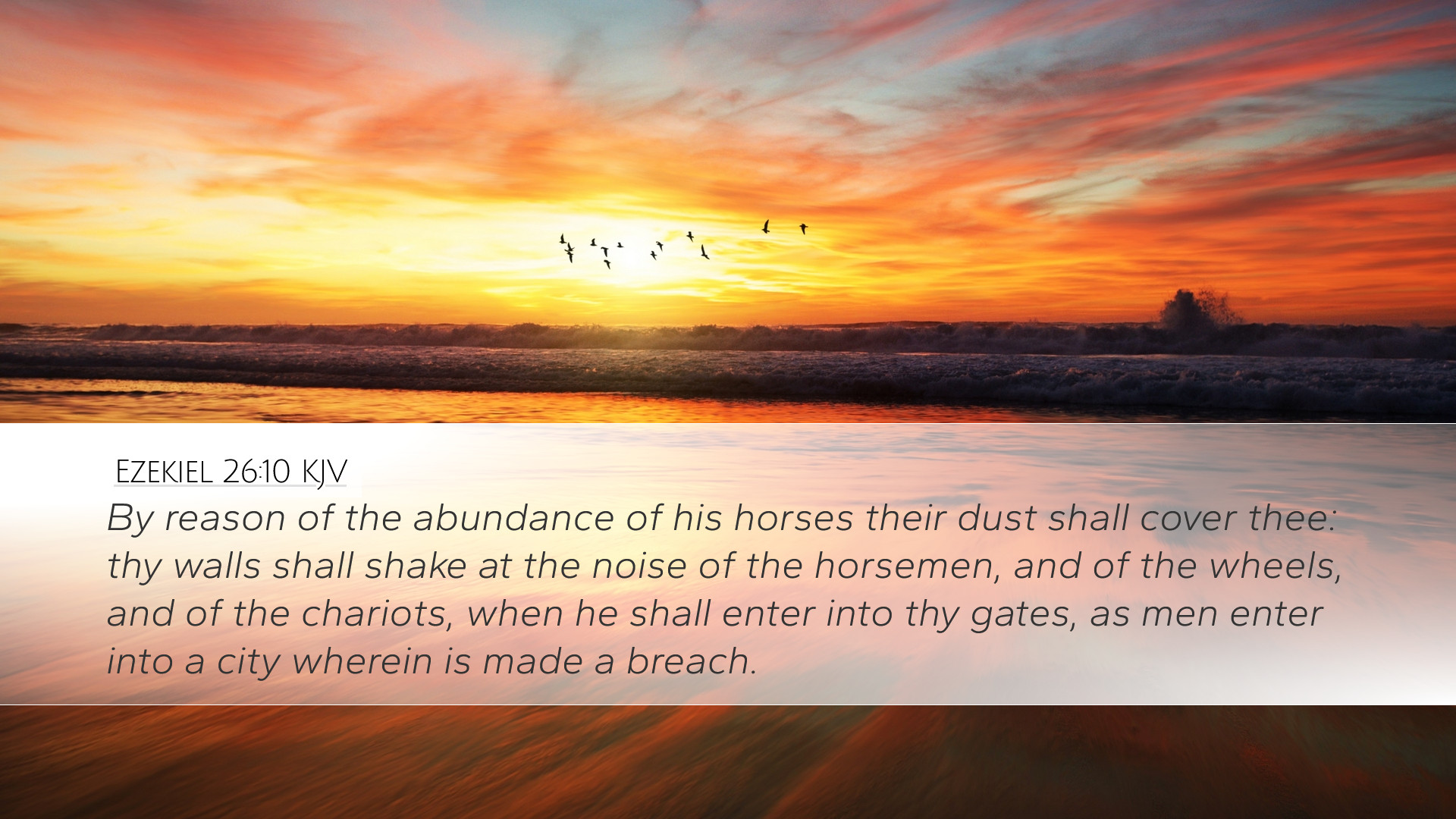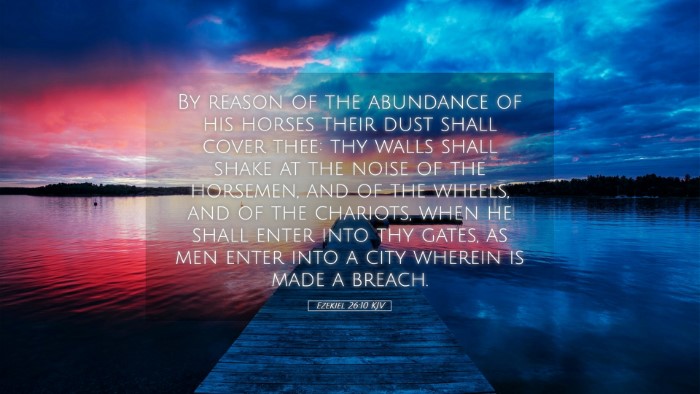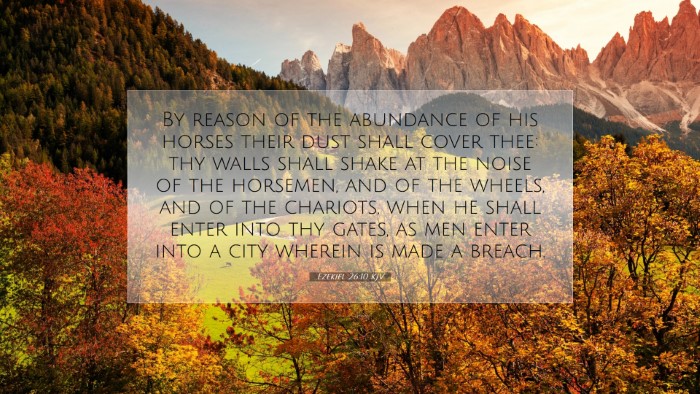Ezekiel 26:10 - Commentary and Insights
Verse Text: "By reason of the abundance of his horses, their dust shall cover thee: thy wall shall shake at the noise of the horsemen, and of the wheels, and of the chariots, when he shall enter into thy gates, as men enter into a city wherein is made a breach."
Introduction
The prophecy in Ezekiel 26:10 is part of a significant denunciation against Tyre, a city known for its wealth, pride, and idolatry. Ezekiel, acting as a mouthpiece for God, forewarns of the impending doom that will arrive through a mighty military force. This commentary combines insights from several public domain sources, including the works of Matthew Henry, Albert Barnes, and Adam Clarke, to explore the depth of this verse.
The Context of Ezekiel 26
The chapter begins with Tyre's response to the fall of Jerusalem, celebrating its downfall, which elicited divine wrath. God uses Ezekiel to proclaim judgments, not only against Tyre but also highlighting the broader implications for nations that oppose Him. Tyre's fate serves as a warning about pride and arrogance before the sovereign will of God.
Interpretation of the Verse
Military Imagery
Henry's Analysis: Matthew Henry describes the powerful imagery of military might portrayed in this verse. The "abundance of horses" symbolizes an overwhelming force, suggesting that Tyre will be besieged in a manner that is both loud and tumultuous, reflecting the reality of ancient warfare.
Symbolism of Dust
Barnes' Observation: Albert Barnes notes that the dust covering Tyre represents both the physical invasion of armies and the spiritual pollution that accompanies sin and idolatry. Dust recalls the desolation that will become both a physical and metaphorical reality for a city that once stood proud.
Impact of the Siege
Clarke's Commentary: Adam Clarke expounds on the description of the gates being breached, highlighting the vulnerability of the city. As the "walls shall shake," this phrase illustrates not only the physical destructiveness of the attack but also the psychological terror that would strike fear into the hearts of the inhabitants.
Theological Implications
This verse illustrates the sovereignty of God over nations and empires. The calamity that befalls Tyre is indicative of God's active governance in history. As such, this passage speaks powerfully to the implications of divine judgment, justice, and the ultimate triumph of God over earthly powers.
God's Judgment
Henry on Divine Justice: Henry emphasizes that God's judgments are executed in due time. Just as Tyre reveled in the misfortunes of others, so too would it experience the consequences of its actions. This serves as a reminder of the moral order upheld by God, where arrogance leads to downfall.
The Lesson for Believers
Barnes' Insight: Barnes draws attention to the lesson for contemporary believers, warning against the pride and self-sufficiency that Tyre exemplified. The passage serves not merely as history but as an exhortation to humility and dependence on God.
Cultural Significance
Clarke's Reflection: Clarke reflects on the cultural element of Tyre as a center of commerce and culture. The impending siege and destruction appear not only as a loss of life but as a loss of cultural identity. This resonates today, as nations and individuals fall when they turn away from divine principles.
Application for Pastors and Theologians
When preaching or teaching from Ezekiel 26:10, pastors should emphasize not only the historical context but also the broader applications concerning human pride and divine justice. Drawing parallels between Tyre and contemporary society facilitates a deeper understanding of the timeless nature of scripture.
Reflection on Pride
The lesson of humility stands central; just as Tyre faced severe consequences for its pride, so can nations and individuals today face judgment for turning away from God. This serves as a poignant reminder that God values humility and contrition.
Encouragement in Trials
For those facing trials, understanding Tyre's fall becomes a lesson in hope. God's promises remain true for His people, and even in judgment, there is an opportunity for redemption and faithfulness to flourish.
Conclusion
Ezekiel 26:10 is a multifaceted verse rich in military imagery, divine judgment, and moral teaching. The combined insights from Henry, Barnes, and Clarke encourage a deeper exploration of the text, revealing its relevance not only in Ezekiel's day but also for modern-day believers. As we reflect on the fate of Tyre, we are urged to consider our personal and collective spiritual state, ensuring that we stand firmly in reliance upon God's mercy and grace.


